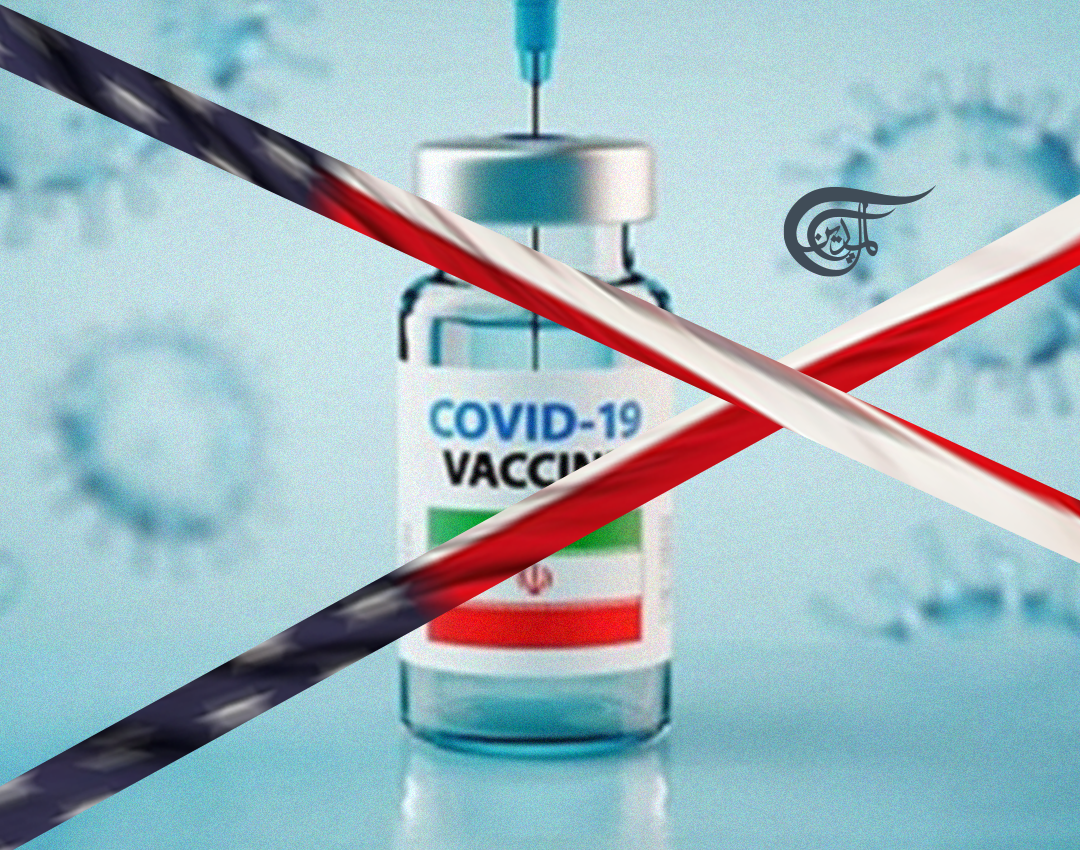US “Maximum Pressure” and the Weaponization of Covid-19 Against Iranians
Under Trump and Biden’s “maximum pressure” campaign, Iran has been facing a double burden.
According to the WHO Director-General Tedros Ghebreyesus, the world faces “vaccine apartheid” where only 0.2% of COVID-19 vaccine supplies flowing into low-income countries, meaning that while wealthier countries begin to return to their everyday life, developing countries continue to deal with the pandemic.
As of July 1, 2021, Iran’s population of over 85 million has registered 84,000 COVID-related deaths with more than 3.2 million infected. Iran’s vaccination program began in February 2020 with imported vaccines from Russia, China, India, and the WHO's COVAX, with priority given to healthcare workers, the elderly, and other vulnerable populations.
The country pre-purchased 16.8 million vaccine doses through COVAX by paying $125 million, hoping that it would cover around 10 percent of its 85 million people. But, so far the country has received only two batches of the vaccine from COVAX with a total number of around 2 million doses. It is estimated that nearly 5 million people have received their first injection with 516,000 being fully vaccinated.
However, Iran’s strategy for combating the pandemic, the slow vaccination process, and the local production of indigenous vaccines instead of simply focusing on importing them have sparked criticism.
Iran began to develop COVID-19 vaccines indigenously with the efforts of local experts from early March 2020. Currently, Iran is jointly producing vaccines with Cuba (Soberana-02 vaccine), Russia (Gamaleya vaccine), and Australia, which are expected to be released by September 2021.
In September 2020, the CEO of the world’s largest vaccine producer announced that there will not be enough doses of COVID-19 vaccines to reach everyone worldwide until at least 2024. Iranian researchers became more determined to invest in developing vaccine production platforms. Iran’s premise for developing indigenous vaccines instead of complete reliance on imported vaccines goes back to the early days of the pandemic when the country was facing severe medical equipment shortages and was struggling to acquire them from abroad. Importing face shields, masks, gowns, goggles, and ventilators from abroad could take months to deliver with the rising global demand and the repercussions of brutal sanctions. Hence, Iran began to produce all of its pandemic-related needs.
Under Trump and Biden’s “maximum pressure” campaign, Iran has been facing a double burden. The sanctions impose a wide range of limitations on financial transactions, trade, shipping, and insurance. Also, Iran must deal with the resulting high inflation rate and very low rate of economic growth.
When in March 2020 Iran’s Central Bank requested $5 billion in emergency funding to help it fight the coronavirus outbreak from the International Monetary Fund (IMF), the US blocked the request claiming that the funds would be used to support Iran’s “adventurism abroad, not to buy medicine for Iranians.” Because of this and since Iran’s assets abroad were seized by the US, Iran could not afford a full lockdown. In order to sustain the economy, Iran enforced a policy of partial lockdowns with speedy efforts to reopen, which lead to serious problems in containing the virus.
Moreover, Iran did not participate in the human trials of the COVID-19 vaccines in the early days of the pandemic, while several MENA countries (Bahrain, Egypt, Jordan, Morocco, the UAE, Saudi Arabia, and Turkey) agreed to participate in the Chinese pharmaceutical companies Sinopharm, Sinovac and CanSino to assess their safety and efficacy. Therefore, these countries secured early purchases of these vaccines and were assured of preferential access.
Iranian researchers also faced several challenges in developing their own vaccines, according to University of Tehran Professor Hassan Jalili, who heads Iran’s Barekat Foundation Research Team. Iran lacked experience regarding the development of SARS and MERS vaccines. Moreover, while sanctions could not stop the country from developing the vaccine, they severely impeded and slowed the process. For instance, laboratory test kits used to assess quality control of the vaccine, or the kits used for vaccine efficacy and effectiveness in clinical trials were sanctioned. Thus, Iran began to develop its own kits, but this slowed the process. Many other related pieces of equipment for vaccine development were sanctioned from one end; from another end, restrictions were imposed to make it almost impossible to transfer funds through the international banking system for their purchase.
A few days ago, Iran’s leader Ayatollah Ali Khamenei received his first dose of the newly developed and domestically produced COV-Iran Barekat vaccine, stating that he delayed his vaccination because he was determined to use the Iranian vaccine. It is said that if sanction-related obstacles were overcome, 10 to 12 million doses of the vaccine will be produced in July and 13 to 15 million doses in August.
For the time being, Iranian health officials have a two-track approach: continuing efforts to mass-produce local vaccines, as well as importing foreign vaccines as much as possible. However, the US continues to impede progress on both fronts.

 Zeinab Ghasemi Tari
Zeinab Ghasemi Tari
 5 Min Read
5 Min Read







